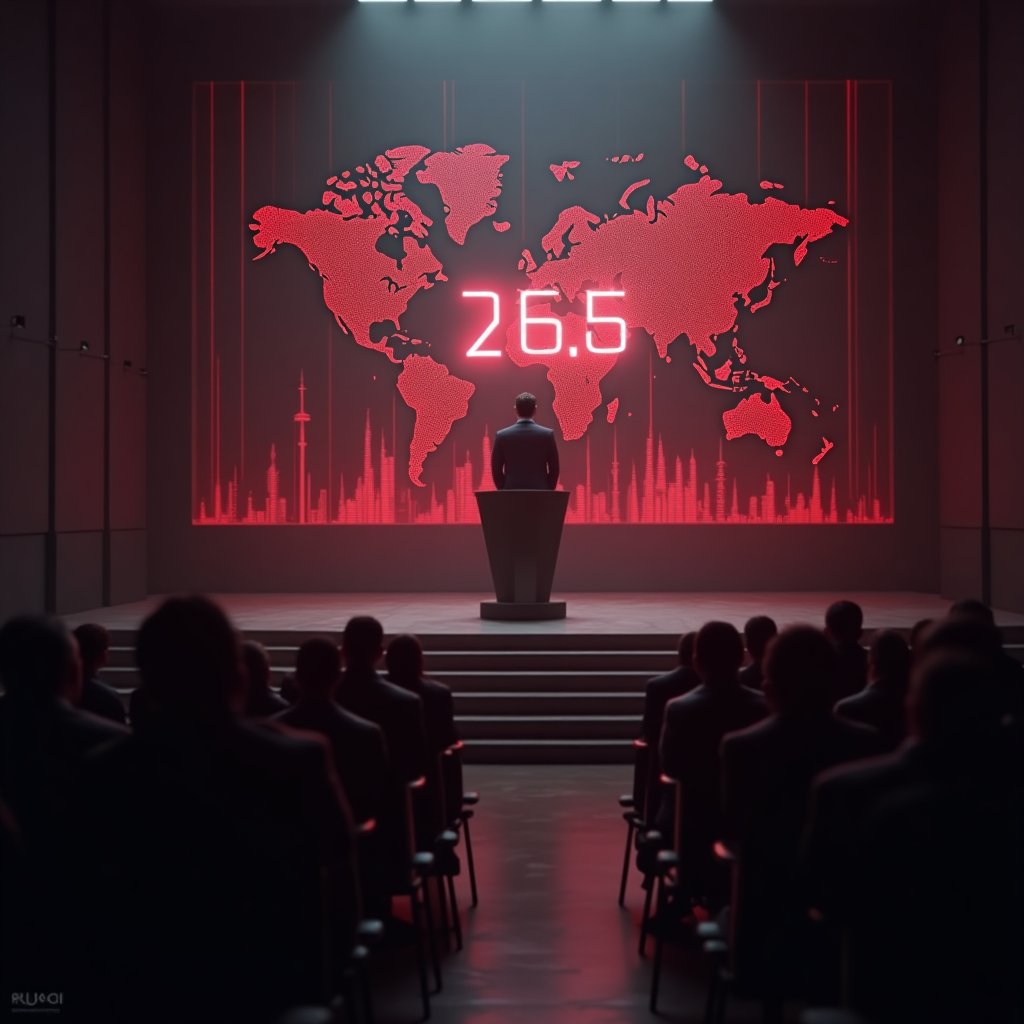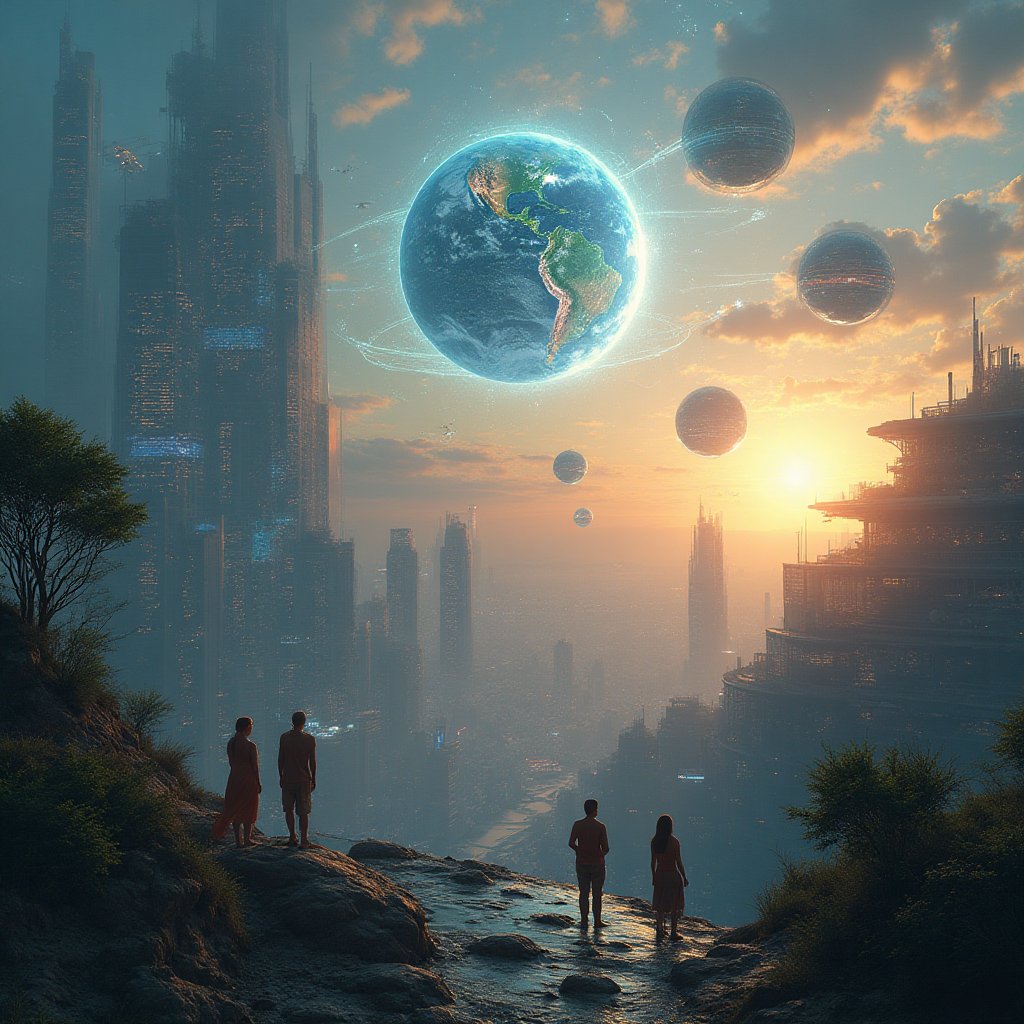Artificial Intelligence (AI) is no longer a futuristic concept—it’s here, and it’s reshaping the world faster than most of us can comprehend. In a recent video by TheAIGRID, the host dives deep into a startling revelation from OpenAI’s head of mission alignment: the world isn’t grappling enough with the seriousness of AI and its potential to upend everything we know. From jobs and education to healthcare and global markets, AI is poised to disrupt the very foundations of society. But are we ready? Spoiler alert: probably not.
This article will unpack the key insights from TheAIGRID’s video, explore the implications of AI’s rapid advancement, and challenge you to rethink your assumptions about the future. Buckle up—this is going to be a wild ride.
The AI Revolution: Why We’re Not Paying Attention
Let’s start with the elephant in the room: most people, governments, and institutions are woefully unprepared for the AI revolution. As TheAIGRID points out, the global discourse around AI is shockingly inadequate compared to the scale of its implications. OpenAI’s leadership, including CEO Sam Altman, has been sounding the alarm for years. In a 2021 blog post, Altman predicted that AI would create phenomenal wealth while driving the cost of labor and goods toward zero. Fast forward to 2024, and his predictions are already coming true.
But here’s the kicker: AI isn’t just about making things cheaper or faster. It’s about fundamentally altering the way we live, work, and think. TheAIGRID highlights a concept called “intelligence too cheap to meter,” where AI systems replicate human intelligence at a fraction of the cost. This isn’t science fiction—it’s happening right now. Companies like OpenAI and DeepMind are racing to develop AI models that are smarter, faster, and cheaper than ever before. And as these models become more powerful, they’re poised to disrupt entire industries.
AI in the Workforce: The End of Jobs as We Know Them
One of the most immediate impacts of AI will be on the workforce. According to TheAIGRID, Sam Altman recently stated that we could see the first AI agents join the workforce by 2025. Think about that for a second: AI agents—not just tools, but autonomous entities—working alongside (or instead of) humans. This isn’t just about replacing repetitive tasks; it’s about redefining what work even means.
Take software engineering, for example. TheAIGRID uses this as a case study, and it’s a perfect illustration of the coming disruption. Right now, hiring a software engineer can cost a company tens of thousands of dollars per year. But what happens when an AI agent can do the same job for a fraction of the cost? Companies will inevitably shift to AI-driven solutions, leading to massive layoffs and a complete restructuring of the labor market.
But it’s not all doom and gloom. As TheAIGRID points out, this shift could also lead to lower prices for consumers. If companies can cut their overhead by 80%, they’ll have more room to compete on price. The result? Cheaper goods and services for everyone. Of course, this raises a whole host of ethical and economic questions. What happens to the millions of people who lose their jobs? How do we ensure that the benefits of AI are distributed fairly? These are the kinds of questions we need to be asking—and answering—before it’s too late.
The Divergence of Cognitive and Physical Work
One of the most fascinating insights from TheAIGRID’s video is the divergence between cognitive and physical work. While AI is rapidly advancing in areas like software development and data analysis, physical tasks—like plumbing or construction—are proving much harder to automate. This is due to something called Moravec’s Paradox, which states that tasks that are easy for humans (like walking or picking up objects) are incredibly difficult for machines.
As a result, we could see a future where cognitive jobs are largely automated, while physical jobs remain in high demand. TheAIGRID gives the example of an iPhone app developer versus a plumber. Right now, it costs around $30,000 to develop a simple iPhone app, but only $300 for a plumbing job. By 2028, those numbers could flip, with physical labor becoming more lucrative than cognitive work. It’s a stark reminder that not all jobs are created equal—and that the future of work will look very different from the present.
AI and Healthcare: A New Era of Medicine
If there’s one area where AI has the potential to truly transform lives, it’s healthcare. TheAIGRID highlights several examples of AI’s impact on medicine, from diagnosing diseases to accelerating drug discovery. Companies like NVIDIA and Microsoft are already using AI to model human biology and predict protein structures, paving the way for breakthroughs in treatments for diseases like Alzheimer’s and cancer.
But the real game-changer could be something called longevity escape velocity, a hypothetical scenario where life expectancy increases faster than people age. As TheAIGRID explains, some experts believe we could achieve this by 2029, thanks to advances in AI and biotechnology. Imagine a world where aging is no longer inevitable—where people can live indefinitely by defying the biological clock. It sounds like science fiction, but it’s closer than you might think.
The Bigger Picture: What Does It All Mean?
So, what does all of this mean for the future of humanity? TheAIGRID’s video leaves us with more questions than answers, but one thing is clear: we’re standing on the brink of a new era. AI has the potential to solve some of the world’s most pressing problems, from climate change to disease. But it also poses significant risks, from job displacement to ethical dilemmas.
As TheAIGRID puts it, the world isn’t grappling enough with the seriousness of AI. We’re too focused on the present to fully comprehend the scale of the changes that are coming. But if we don’t start preparing now, we risk being blindsided by a revolution that’s already underway.
Join the Conversation: What Do You Think?
The future of AI is both exciting and terrifying. What do you think about the predictions made by OpenAI and TheAIGRID? Are we ready for the coming revolution, or are we sleepwalking into a new world order? Share your thoughts in the comments below and let’s start a conversation about the future we want to create.
And if you’re as fascinated by this topic as we are, why not join the iNthacity community? Become a permanent resident of the “Shining City on the Web” and stay ahead of the curve on all things tech, innovation, and the future. Like, share, and participate in the debate—because the future is too important to leave to chance.
Wait! There's more...check out our gripping short story that continues the journey: The Stargazer of Tahuaca: A Tale of the Lost Mayan City
Disclaimer: This article may contain affiliate links. If you click on these links and make a purchase, we may receive a commission at no additional cost to you. Our recommendations and reviews are always independent and objective, aiming to provide you with the best information and resources.
Get Exclusive Stories, Photos, Art & Offers - Subscribe Today!


























Post Comment
You must be logged in to post a comment.